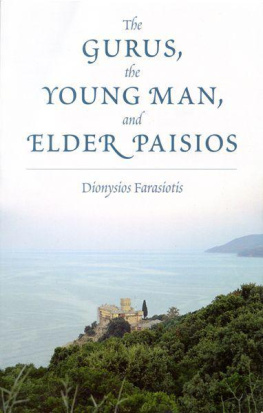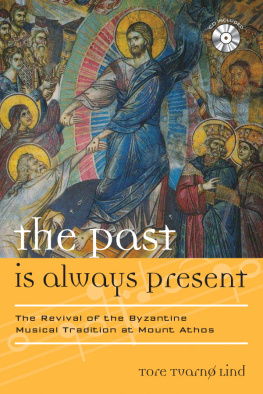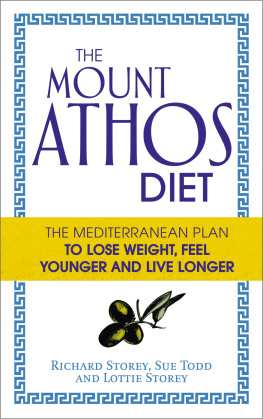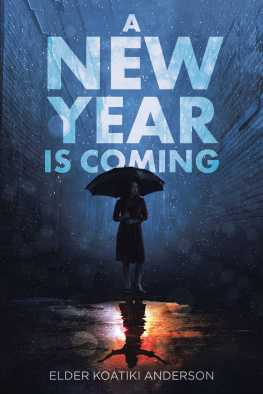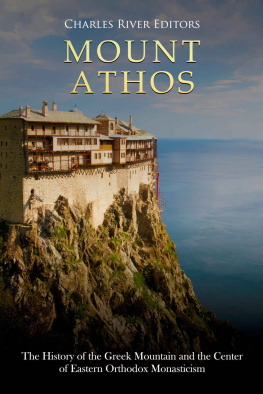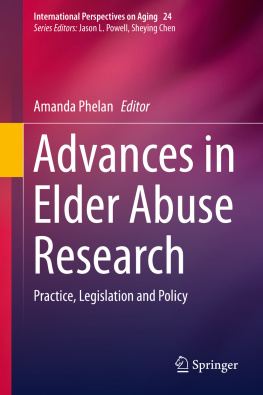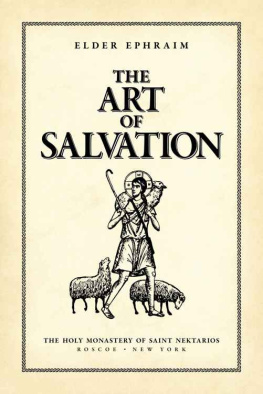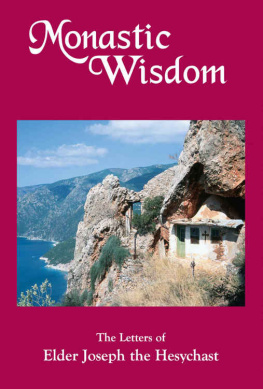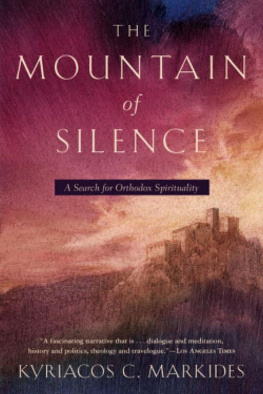
Elder Paisios of Mount Athos, Greece (19241994).
The Gurus, the Young Man,
and Elder Paisios
By Dionysios Farasiotis
Translated and adapted by Hieromonk Alexis (Trader), Holy Monastery of Karakallou, Mount Athos
Edited by Philip Navarro

ST. HERMAN OF ALASKA BROTHERHOOD
2011
English translation copyright 2008, 2011
by Athanasios Rakovalis. All rights reserved.
Originally published in Greek as Oi gourou, o neos, kai o Gerontas Paisios (Thessaloniki: Athanasios Rakovalis, 2001). Inquiries regarding the Greek edition may addressed to .
All other correspondence may be addressed to:
St. Herman of Alaska Brotherhood
P. O. Box 70, Platina, California 96076 USA
website: www.sainthermanpress.com
email:
First English edition: November 2008.
Stavronikita Monastery, Mount Athos, Greece.
Photograph by the author, July 16, 2004.
Mount Athos. Photograph by Evgeni Dinev.
Publishers Cataloging in Publication
Farasiotis, Dionysios.
The gurus, the young man, and Elder Paisios / by Dionysios Farasiotis; translated and adapted by Hieromonk Alexis (Trader); edited by Philip Navarro.1st ed. Platina, Calif.: St. Herman of Alaska Brotherhood, 2008.
p. ; cm.
ISBN: 978-1-887904-16-2
Includes suggested readings.
1. Spiritual formation. 2. Spiritual life Christianity. 3. Christian life. 4. Paisios, Gern, 19241994.5. Orthodoxos Ekklsia ts Hellados. I. Trader, Alexis. II. Navarro, Philip. III. Title.
BX382.F37 2008
248.4dc22
2008938048

Elder Isaac of Mount Athos (19361998). (See below.)
The English edition of this book is dedicated to Elder Isaac, spiritual child of Elder Paisios and, in my life, the elder after the Elder.

Elder Paisios.
CONTENTS
FOREWORD
by Monk Arsenios (Vliangoftis)
I am honored to write the foreword to this book, whose author is among the thousands helped by the blessed Elder Paisios the Athonite. But it was not mere help that he received Christ, truly, saved him from the mouth of the wolf through the elders prayers.
It has been my joy to know him for many years, and I testify unconditionally to the authenticity of his account.
The author, a man with profound spiritual yearning, wanted not simply to learn from books but to know the Truth empirically. Thus wanting to experiment he surrendered himself to non-Christian experiences, such as yoga, hypnotism, and witchcraft. Not believing, as he himself records, that a person would be willingly aligned with evil, he placed himself in deadly spiritual danger. The infinite goodness of God much more than his curiosity directed his steps to the Holy Mountain. There, his eyes were opened to a different spiritual world, to the truth of God our Father, Whose love for us cannot be expressed. There began the healing of his spiritual traumas.
Through the God-bearing Elder Paisios, the spiritual experiences he had there had endowed him with the truth of God. And still what mystery the soul of man conceals!in spite of this, he chose to give the same opportunity to Hindu yogis that he had given to the Orthodox monks he had met. He obsessed over the question of whether the yogis, with whom he was particularly fascinated, were with God or with the devil.
In such a state, he found himself in India, where he would undertake a lengthy search among the communities of three famous gurus, one of whom was worshipped as a god.
He achieved his spiritual goals, but this very achievement was his spiritual death. Had it not been for the prayers of Elder Paisios on Mount Athos, he would have descended to the darkness of luciferic deification. The nature and depth of ones intentions, the spiritual dangers one faces, and the other circumstances of ones life all are part of Gods judgment of man. And, at last, his heart denied the darkness that blocked the light of Christ.
The gentle, all-powerful grace of the Triune God, which ever respects mans hallowed personal freedom, healed him from the heavy spiritual and psychic wounds he carried back with him from India. This grace was drawn down, with sweat and blood, by the paternal and maternal love of the saintly Elder Paisios.
In presenting this poignant, powerful memoir, the author has actually composed an account of a soul encountering the great problem of contemporary interest in Hindu spirituality, in witchcraft and occult practice which over the last thirty years has practically inundated Western counties, Greece included.
In the Ladder of Divine Ascent, the incomparable sixth-century spiritual guide bestowed on us by Saint John the Sinaite, we read that those who have once fallen to passionsmay become, by restoration to health through repentance, physicians, beacons, lamps, and pilots for all; teaching us the habits of every disease and from their own personal experience being able to rescue those who are about to fall.
We can benefit greatly from the authors arduous experience. He expresses the hope that others, learning his story, will be able to gain the same understanding he did, without having to undergo the same suffering. This we too desire for all the spiritual seekers of pure intention who will read this book.
Monk Arsenios
Holy Monastery of Saint Arsenios
Vatopedi, Halkidiki, Greece
May 2008

Elder Paisios at the Holy Monastery of the Evangelist John the Theologian, Souroti, Greece, where he is now buried.
PREFACE
To the Reader
I consider myself fortunate to have met in the course of my life remarkable people such as Elder Paisios. They have been instrumental in helping me find my way. Through the wondrous experiences they graciously offered me, they provided answers to disquieting questions I had been grappling with for many years: Is there any meaning to the universe? Does God exist? How should I live? Who am I, and what is my inner nature? Will I cease to exist after death?
Consumed with such questions, I was moving and breathing deep in the heart of a mystery. Life and the world were an immense mystery, and the most immediate mystery I faced was my own self: my self, that unknown entity. I was simply unable to live without answers to these questions; for me, such a life was impossible.
The people around me, and society in general, lived without giving the slightest thought to problems of this kind. The values according to which the life of society is organized are economic. Our lives are planned out. My life, too, had been prearranged. Other people had done all my thinking for me, long before I was born. I would get my degree, find a good job, get married, have children, raise a family, take a few trips and vacations, retire, and then die. Everything was arranged. I thought: Very nice, but why should I do all of this? What is the meaning and purpose of life?
I realized that every morning you get up early to go to work at a usually joyless occupation that drains you of all your and for relaxation watch a soccer match or a mindless television show, which is followed by the evening news, during which you are told what is interesting and what opinions you should form on various minor issues. After some sleep, the cycle repeats itself. Of course, from time to time, you might see some friends and go to a restaurant to exchange some pleasantries, but who has the energy or the intellectual stamina to entertain serious questions? Come on, pal, we just want some small talk, so we can have a good time to get us comfortably through the day. And, ultimately, this is how you pass your entire life.
Next page
